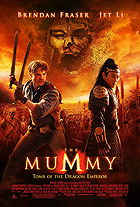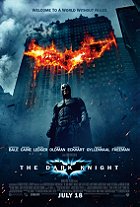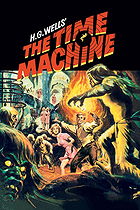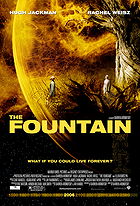A story about family, greed, religion, and oil, centered around a turn-of-the-century prospector in the early days of the business in the dawn of the 1900s onwards.
Daniel Day-Lewis: Daniel Plainview
The whole film begins with a form of genius that I have not seen for an age, that bears similarities to Stanley Kubrick's work and 2001:A Space odyssey. I know of no-one else with this unique link from this film which I've hit the nail on the head.
It begins with no dialogue and hauntingly awesome music that impacted my senses. The effect throughout the film of the music composition and score had the same mesmerizing hold on me.

A scene that stays with me is that touching image of Daniel with his son and the baby looks up and touches his face, his bristly mustache and you truly feel he is the guardian of this child, truly beautiful.
Also was crying at the final montage with his son that will make your heart feel weighty while hitting home, pummeling you into a state of disbelief.
PT Anderson delivers his best work with "There Will Be Blood".
Plainview is a misanthropist who paradoxically seeks companionship even as he loathes mankind in general. His investment in oil is motivated entirely by his desire to earn enough money to escape civilization altogether. He loathes religion, dismissing it as a superstition, and entertains human interaction only when he calculates that it is crucial to his oil mining. Daniel Day-Lewis' ("Gangs of New York",''Last of the Mohican's'' ) gripping portrayal of Plainview cannot be over-estimated or doubted for a second. His willful stage presence lends the film a searing intensity that both counteracts and complements the film's measured pacing.
''Stop crying, you sniveling ass! Stop your nonsense. You're just the afterbirth, Eli.''
Yet while the story is certainly rich with detail and subtlety, There Will Be Blood is hardly a film of words as I've said already. At times fifteen full minutes will pass without any dialogue at all. The space that fills these stretches of silence greatly enhances the film's sense of space and desolation. Even when characters do speak, nobody says more than necessary. Words are carefully chosen and tersely delivered, and there is much to be read between the lines.
Words don't describe Paul Thomas Anderson's latest epic film project easily, and he doesn't let them dominate the story either. A significant segment of There Will Be Blood has no dialogue and the ability for it to stay so captivating is only a testament to Anderson's incredible ability to tell stories about people through images that says more than about what's happening.
Anderson's weapon in this film is no secret. It isn't often Daniel Day-Lewis's name shows up on a marquee these days, especially when it's not tied to something that is sure to be good. This latest choice of his, however, is better than good and so is he. His character, Daniel Plainview, a self-proclaimed "oilman," is deeply complex and troubled. The way that Day- Lewis plays the lighter parts and seamlessly transitions to the darker parts is chillingly believable. Plainview is not only interesting, but he's embraceable, despicable, amusing and frightening all throughout the venture.
The only truly supporting cast, is his son and a self-proclaimed prophet, that he comes into complications with played by Paul Dano (Little Miss Sunshine). Dano's performance is unfortunately over-shadowed by Day-Lewis and it does feel like he was too young to be cast, but the 23-year-old is highly impressive and will perhaps be a marquee name in the near future.
Blood is otherwise the strength and glory of Anderson and his crew. The original score by Jonny Greenwood, who is mostly known for his guitar skills in Hollywood, brings something abstract that simultaneously fits the film's generally quiet demeanor using a variety of percussion sounds and few musical notes. While some films prefer soaring John Williams themes, Greenwood's theme for Blood is one dissonant chord and a sound effect that can be best described as a sombre humming. It's harsh, like the story's theme. Anderson makes every moment matter, whether it's when there's music blaring or where he puts the camera lens.
''There's a whole ocean of oil under our feet! No one can get at it except for me!''
To best describe the film in terms of people familiar with Anderson's work, it's his first film that truly translates to the interests of all dramatic film-lovers. It is distinctly his film, yet viewers will be able to grasp it much more easily than the abstract and obscure multiple storyline nature of Boogie Nights and Magnolia. For people new to his work, be prepared to feel some discomfort, but if you pay attention to the way the story is told, then you'll find the mastery of Blood's intention.
Instead of leaning on dialogue, much of the film's force comes from its gorgeous cinematography. Meticulously detailed and breathtakingly beautiful, There Will Be Blood is visually arresting from the film's beginning to its conclusion.
Similarly, the score (composed by Radiohead guitarist Jonny Greenwood) greatly accentuates the film's most dramatic moments. Yet while the music itself is impeccable, the way that Anderson employs it is even more impressive. Violins and sparse percussion rise and fall at unexpected moments, carefully cultivating a sense of unease while still managing to feel natural and well considered.
Perhaps the most incredible thing about There Will Be Blood is its minimalism as I may have said previously. In spite of its long runtime (which approaches three hours), the film never feels indulgent or overly complex. Anderson slows down the pacing of the film to a deliberate lurch. This might frustrate impatient viewers, but the approach ultimately makes the film's several climaxes more rewarding and its emotional peaks more stunning.
There Will Be Blood is both visceral and cerebral and hits home on all levels, the rare film that combines the raw emotion of our most human instincts with smart, well-conceived film-making techniques. Fulfills and exceeds even the hype and capable of meeting even your wildest expectations, Anderson's latest is truly a masterpiece of cinema.
 Login
Login
 Home
Home 24 Lists
24 Lists 448 Reviews
448 Reviews Collections
Collections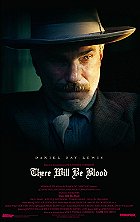
 0 comments,
0 comments, 

